In this article, we look to outline the various construction certifications that a construction professional should consider when looking to build their resume. Whether you’re in safety, sustainability, or a project specific role, this article should give you an understanding of which certifications will level up your career.
Table of Contents
Click to Jump to Each Section:
Top Construction Certifications
To keep this list organized, the top construction certifications are classified in the categories of safety, project, environmental, and trade-specific certifications. There are thousands of certifications, courses, and various training that construction professionals can obtain.
For example) Safety-related roles, like a Safety Director, might have a dozen certifications alone that they carry to meet site or regulatory requirements. Additionally, leaders in the safety world might obtain a variety of additional training certifications to further professional development.
We won’t cover thousands of construction certifications, but we will outline a detailed list of the top construction certifications in each category.
Construction Safety Certifications
The following list of construction certifications are safety-related but vary in the level of detail or curriculum that each certification course will cover. For example, a first-aid course is a construction certification that all construction workers should obtain on their resume, but not all workers need their OHST certification.
These certifications are designed to build safety professionals’ careers but can be useful for all workers looking to expand their construction safety focussed knowledge. Listed below are construction safety certifications that construction professionals will want to consider:
- OSHA 10-Hour Construction Card (OSHA 10): Students who attend the 10-hour course receive this card. The 10-hour course is intended for entry level workers. This course provides information about worker rights, employer responsibilities, and how to file a complaint and provides basic awareness training on the recognition, avoidance, abatement, and prevention of workplace hazards. This course is basically the Construction 101, and most general form of safety training that all construction workers should have.
- OSHA 30-Hour Construction Card (OSHA 30): Students who attend the 30-hour course receive this card. The 30-hour course is intended for supervisors or for workers with some safety responsibility. It provides a greater depth and variety of training on an expanded list of topics associated with workplace hazards than the 10-hour course.
- First-Aid/CPR Training: A construction-focused first aid training course will cover burn response, CPR, AED use, scene assessment, six key first aid skills, choking, job hazards, emergency contacting, and basic risk mitigation.
- Certified Safety Manager (CSM): This Safety Manager Certificate is an indication to employers, potential employers, regulatory agencies, and the courts that you have the knowledge, skills, and abilities equivalent to a level of proficiency expected of a professional who is capable of working with little or no supervision while managing the safety programs, policies, and procedures common to business and industry.
- Safety Trained Supervisor (STS): The Safety Trained Supervisor (STS) is intended for leaders at all levels of an organization because all employees have responsibilities for a safe work environment. This certification is intended for executives, directors, managers, supervisors, superintendents, and employees. These individuals may not have safety as a primary duty, but their knowledge of safety practices ensures safer and healthier worksites, and their competency strengthens the foundation of safety in the organization.
- Certified Safety Manager Construction (CSMC): This course will provide the tools necessary to implement proper safety training and an effective safety program. Students will learn how to understand and interpret regulations, avoid civil and criminal liability, increase worker morale, reduce workers comp rates and most importantly, minimize or eliminate injuries wherever construction activities may occur.
- Safety Director Certification (SDC): Safety Director Certificate indicates a high level of proficiency and is one of the most sought-after certificates in the industry. The Safety Director Certificate is an indication of a level of proficiency expected of a safety professional who is capable of developing and managing a comprehensive facility-wide or corporate safety program.
- Licensed Safety Professional (LSP): The highest designation through the National Association of Safety Professionals (NASP) is the Licensed Safety Professional. The LSP certification indicates an ability to develop and implement a full safety program. Your responsibilities include the supervision of other employees and managers.
- Certified Safety and Health Manager (CSHM): The Certified Safety and Health Manager credential recognizes knowledge of occupational safety and health plus a working knowledge of business and financial principles and assesses your understanding of hazard analysis, accident investigation, safety audits, workers comp, product safety, environmental laws, labor relations, and more.
- Certified Industrial Hygienist (CIH): A Certified Industrial Hygienist will complete an exam to demonstrate a minimum level of knowledge and skills in the following subject matter areas:
| • Air Sampling & Instrumentation • Analytical Chemistry • Basic Science • Biohazards • Biostatistics & Epidemiology |
• Community Exposure • Engineering Controls • Ergonomics • Health Risk Analysis & Hazard Communication • IH Program Management |
• Noise • Non-Engineering Controls • Radiation • Thermal Stressors • Toxicology • Work Environments |
- Construction Health and Safety Technician (CHST): The Construction Health and Safety Technician (CHST) certification is designed for individuals who demonstrate competency and work part-time or full-time in health and safety activities devoted to the prevention of construction illnesses and injuries. The CHST certification meets national standards for certifications.
- Certified Instructional Trainer (CIT): The Certified Instructional Trainer (CIT) is a certification held by those with experience and expertise in developing, designing, and delivering safety, health, and environmental training. Safety training at this level is virtually in every industry including manufacturing, petroleum production and refining, and construction. A CIT may hold positions at the manager, director, technician, or supervisory level and may have other duties in addition to training.
- Associate Safety Professional (ASP): A course designed but the Board of Certified Safety Professionals (BCSP), the Associate Safety Professionals (ASP) course is for persons who perform at least 50% of professional-level safety duties including making worksite assessments to determine risks, potential hazards, and controls, evaluating risks and hazard control measures, investigating incidents, maintaining and evaluating incident and loss records, and preparing emergency response plans.
- Certified Safety Professional (CSP): A course designed but the Board of Certified Safety Professionals (BCSP), the Associate Safety Professionals (ASP) course is for persons who perform at least 50% of professional-level safety duties including making worksite assessments to determine risks, potential hazards, and controls, evaluating risks and hazard control measures, investigating incidents, maintaining and evaluating incident and loss records, and preparing emergency response plans. Cannot obtain until completion of ASP certification.
- Graduate Safety Practioner (GSP): The Graduate Safety Practitioner (GSP) is a designation available to college and university graduates from safety, health, and environmental (SH&E) degree programs which meet BCSP Qualified Academic Program (QAP) standards. The GSP program is an alternate path to the Certified Safety Professional® (CSP®) and does not replace other paths.
- Safety Management Specialist (SMS): The Safety Management Specialists (SMS) course is for individuals with management skills required for a business’s safe operation, applying these safety skills on a full-time or part-time basis as part of their job duties. Some examples of an SMS’s activities include defining and utilizing an organization’s safety management systems; risk management; incident investigation and emergency preparedness; maintaining current knowledge of safety, health, and environmental (SH&E) concepts; and identifying the business case for safety.
- Occupational Hygiene and Safety Technician (OHST): Occupational Hygiene and Safety Technicians (OHST) course is for persons who perform occupational hygiene and safety activities on a full-time or part-time basis as part of their job duties. Some examples of occupational hygiene and safety activities are making worksite assessments to determine risks, potential hazards, and controls, evaluating risks and hazard control measures, investigating incidents, maintaining and evaluating incident and loss records, and preparing emergency response plans.
Project-Related Construction Certifications
The following list of construction certifications are specific to managers of construction or project managers coordinating various construction builds. These designations are designed to help managers in the field develop the most relevant skills/qualities to manage teams and individuals most effectively. Listed below are management certifications that professionals who facilitate projects will want to consider:
- Construction Manager In-Training (CMIT): The CMIT is a self-paced certificate program that helps aspiring CM professionals launch and develop a successful career into the CM industry. The designation demonstrates competence in the practice of CM early in an individual’s career. Those who have earned their CMIT are able to demonstrate their investment in the industry as well as in their own professional development.
- Certified Construction Manager (CCM): The Certified Construction Manager (CCM®) recognizes professionals who have chosen a career in construction management and voluntarily met the prescribed criteria of the construction management certification program with regards to formal education, field experience and demonstrated capability and understanding of the CMAA body of knowledge.
- Project Management Professional (PMP): The Project Management Professional (PMP)® is the world’s leading project management certification. Now including predictive, agile and hybrid approaches, the PMP® proves project leadership experience and expertise in any way of working. It supercharges careers for project leaders across industries and helps organizations find the people they need to work smarter and perform better.
- Certified Professional Constructor (CPC): Certified Professional Constructor (CPC) is the highest level of certification in the Constructor Certification Program. This level of certification is ideal for individuals with established constructors who have several years of project oversight experience and seek to take their career to the next level. Individuals that seek the CPC designation are experienced at managing the process of construction.
Environment & Sustainability Construction Certifications
The following list of construction certifications are tailored to individuals working in the environmental/sustainability side of construction. The industry has emphasized the importance of roles like this more heavily in the past decade, and the demand for highly skilled individuals continues.
Environment and sustainability professionals will continue to shape how we build a better, greener future. Here are some of the courses and certifications these professionals will want to obtain:
- LEED Green Associate: The LEED Green Associate credential affirms a professional’s thorough comprehension of green building principles and practices. The exam is ideal for those newer to sustainability and LEED.
- LEED AP with Specialty: A LEED AP credential distinguishes those with advanced knowledge in green building, plus expertise in a particular LEED rating system. Previous experience working on a LEED-registered project is strongly recommended.
- Sustainability Excellence Associate (SEA): The SEA designation is an entry-level course designed by the International Society of Sustainability Professionals (ISSP) and helps professionals develop a clear understanding of the core sustainability concepts.
- Sustainability Excellence Professional (SEP): The SEP designation is an advanced course prepared by the ISSP to assist those with extensive experience in the field of sustainability. Explore the various tactics and transitions needed in order to adapt to a more sustainable future.
- Global Reporting Initiative (GRI) Professional Certification Program: The GRI certification can help to enhance your knowledge and skills needed to use the GRI Standards. Get professional recognition by a trusted source and improve the quality of your sustainability reporting. Build your professional resume in sustainability with a globally recognized program.
- Certified Energy Manager (CEM): The Certified Energy Manager is a certification designed for individuals that optimize the energy performance of a facility, building or industrial plant. The CEM® is a systems integrator for electrical, mechanical, process and building infrastructure, analyzing the optimum solutions to reduce energy consumption in a cost effective approach. CEM’s are often team leaders and help to develop and implement their organizations’ energy management strategies. CEM’s have gained increased recognition within the energy industry and by companies looking to strengthen their competitive position by having a CEM on staff.
- Renewable Energy Professional Certification (REP): The Renewable Energy Professional certification is designed to recognize the expertise and experience of professionals involved in the specification and application of renewable and alternative energy technologies, assessment of renewable energy projects, and development of achievable low-carbon and sustainability goals for organizations.
- Certified Sustainable Development Professional (CSDP): The Certified Sustainable Development Professional (CSDP®) program recognizes individuals with expertise in Developing & Implementing Sustainability Programs, Environmental Issues, Alternative Energy & Carbon Reduction, Sustainable Policy Programs, Energy Efficiency Technologies in Sustainable Buildings, Impact of Sustainable Development Policies, Renewable Energy, Sustainable Transportation, Water Conservation and Financial Assessments.
Labor & Trade-Specific Construction Certifications
Each trade has a variety of trade-specific certifications that are relevant to the role and the career trajectory of individuals who work in that trade. Electricians and plumbers might need some of the same general construction certifications, like OSHA10 or First Aid/CPR training, but a lot of the detailed training needed to acquire trade-specific certifications are not similar.
We won’t be able to cover the thousands of trade-specific certifications that construction professionals can obtain, but let’s look at plumbers as an example of trade-specific construction certifications.
A plumber may want to obtain these certifications:
- Certified in Plumbing Design (CPD)
- Heating Professional
- Piping Inspector Certification (API)
- Air Conditioning and Heat Pump Professional
- Certified Installer (CI)
- Air Conditioning Service Certification
- Medical G.A.S. Installer (Med)
- Master Oil Heat Specialist Certification (6149)
Why are the construction certifications listed important to a plumber? Well, a plumber might be focussed on one area of construction, but their role incorporates a variety of day-to-day tasks. A well-rounded plumber will be able to tackle jobs that involve heating and cooling, inspection of pipes, installation of new pipes, and will need an understanding of dealing with natural gas.
Trade-specific certifications are incredibly important when an individual looks to level-up their career from an entry-level role to a well-established and knowledgeable leader in the field.
Top Priority Construction Certifications: Which Should I Obtain First?
Start with the basics and keep it simple. All construction professionals should acquire some level of basic safety training, not only to protect themselves and others on-site but to build their resume with relevant educational experience.
The must have safety courses for ALL construction professionals are:
- OSHA 10
- OSHA 30
- First Aid/CPR training
- Other regulatory mandated certifications
Depending on the state/region you live, there might be additional certifications that would be attractive on a resume or even mandated by regulatory bodies in the region. For example, workers in new York have to acquire an SST Card (Site Safety Training Card) in order to legally perform work on some jobs. The SST Card consists of OSHA 30, 8-Hour Fall Arrest Training, and 2-Hour Drug and Alcohol Awareness training.
If you’re dead set on a career in a specific trade, then research which trade-specific certifications will get you ahead. Or, if you’re interested in project management or safety-related roles, look at some of the construction certifications that we have listed above. Always start with the entry-level prerequisite certifications and be sure to have a plan around which certifications are important to contractors in your region.
If you live and work in New York City, fall arrest training is a must because almost every job incorporates scaffolding and working at some heights. However, if you work in a rural area where high-rise construction is not as common then fall arrest training might not even be something that recruiters are looking for on your resume. Be sure to understand the requirements of the state/region that you work in when deciding which construction certifications are important to obtain first.
The Importance of Up-To-Date Certifications in Construction & The Risk of Expired Training
Why should a worker and their employer care about certifications being up-to-date?
Well, for starters, expired certifications put you, the worker, at risk on the job. But, secondly, expired certifications put your employer and everyone around you on-site in a bad spot.
A worker with an expired certification on a construction site is a ticking time bomb. Any incident or accident that happens will likely have some level of investigation and one of the first things to be identified is the status of the worker’s training certifications. For general contractors, ensuring that all workers on a site are up-to-date and qualified is extremely important to meet insurance requirements and save loads of money on insurance costs.
>>> Article – Certification Tracking: The Mind-Blowing Costs of Expired Training Certifications
Tip: Adopt Technology to Help Your Team Proactively Manage Construction Certifications
myComply’s Company Certification Manager (CCM) allows your company to store photo proof of worker certifications, eliminate manual management, and get automated expiry alerts to ensure worker training never lapses/expires.
Photo (above): Store proof of a worker’s certification and access the information at any time.
Photo (above): Get automated alerts to ensure no worker is operating with expired training certifications.
Technology like myComply allows your team to ditch spreadsheets and other manual tracking efforts. When manually tracking construction certifications a firm risks letting certification expiries fall through the cracks, which can be devastating if/when an incident occurs.
>>> Article: Certification Management Software for Construction: 5 Key Benefits
Conclusion: Stay Up to Date & Always Be Learning
The key to building a successful career in construction is to always be learning, and staying up-to-date. Staying up to date doesn’t just apply to up-to-date training certifications, but also staying in-the-know with industry trends. Follow construction newsletters, attend local networking events, and obtain as much knowledge about your space to be considered an expert in your field.
A good example of keeping in touch with industry trends is looking at which technology is surfacing. As the industry adopts more and more technology, don’t ignore what types of tech can make your role easier and make you more efficient in your job.
Always be learning, building your resume, and growing your knowledge base.
P.S. In the spirit of always learning, we’ll be sure to have an article on the best construction podcasts, newsletters, and blogs to come soon.

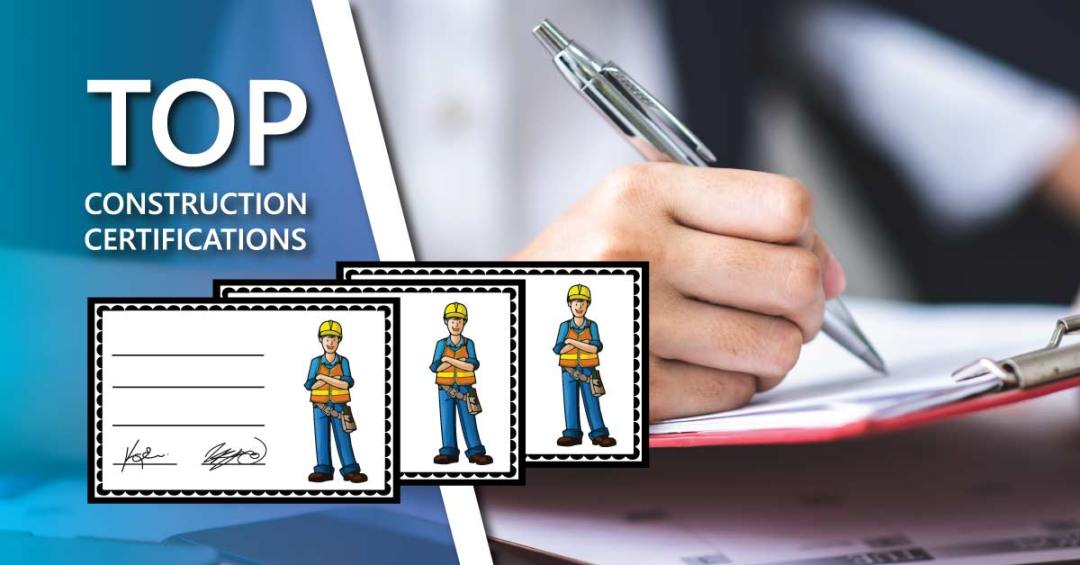

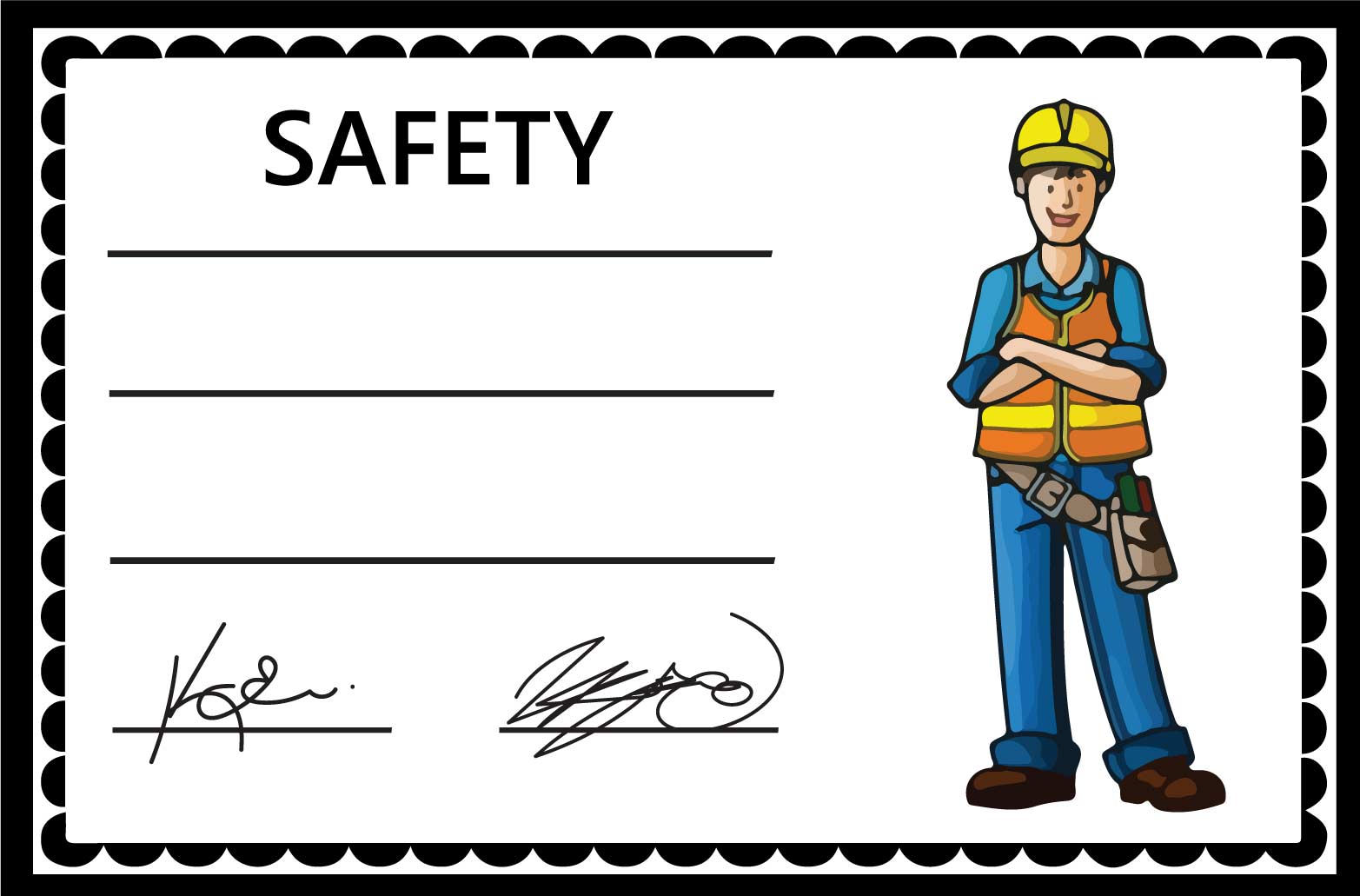
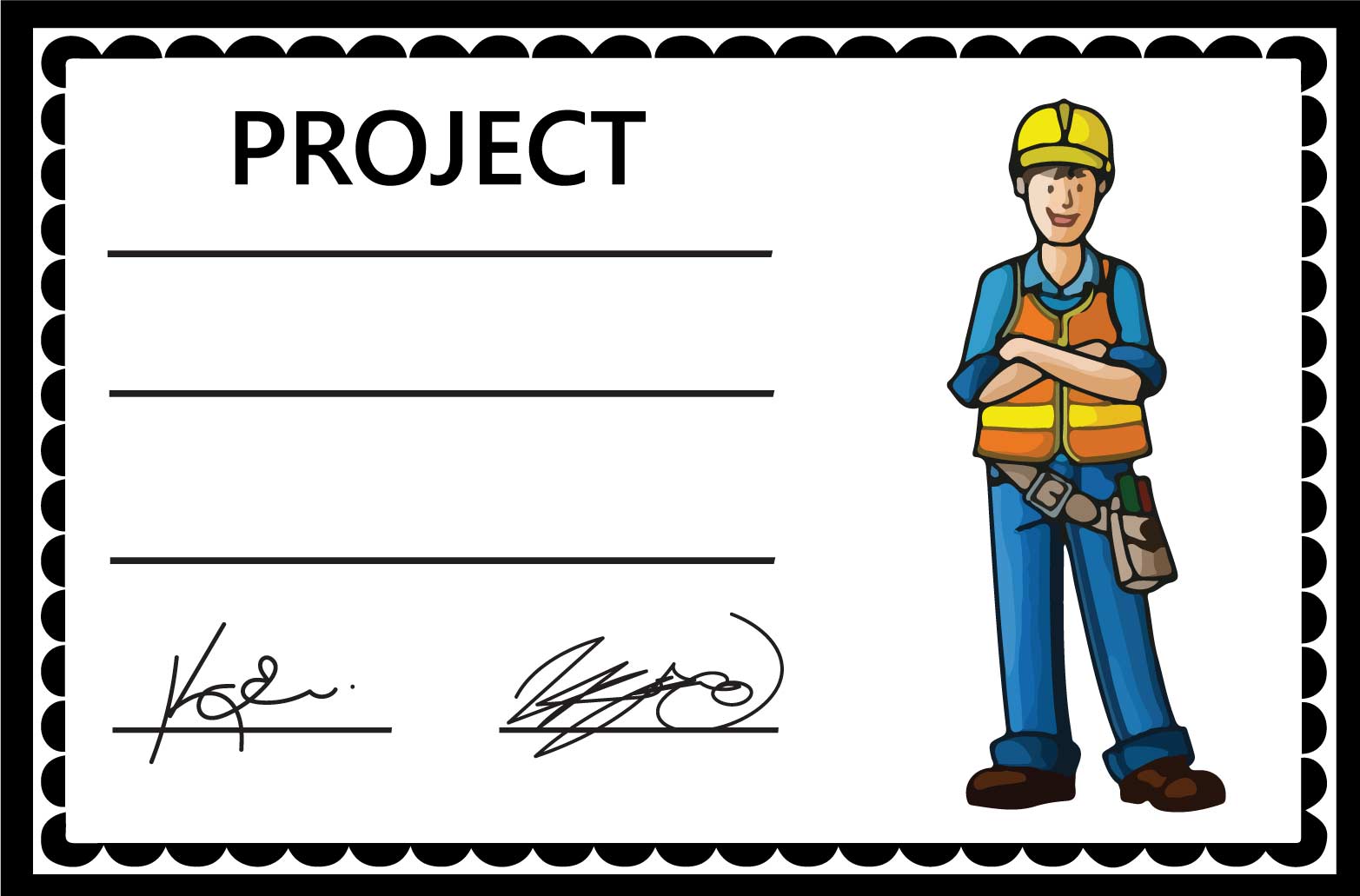
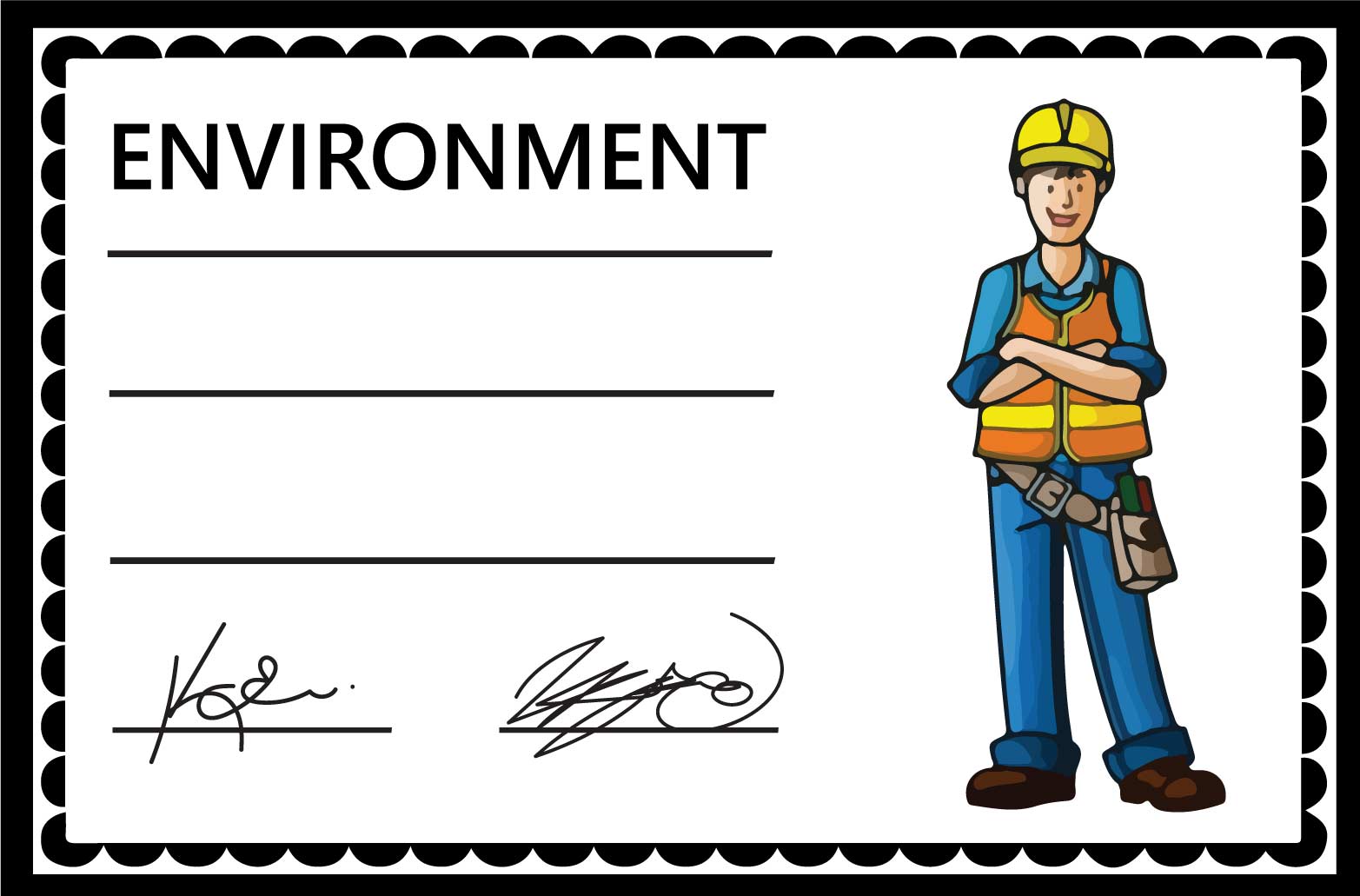
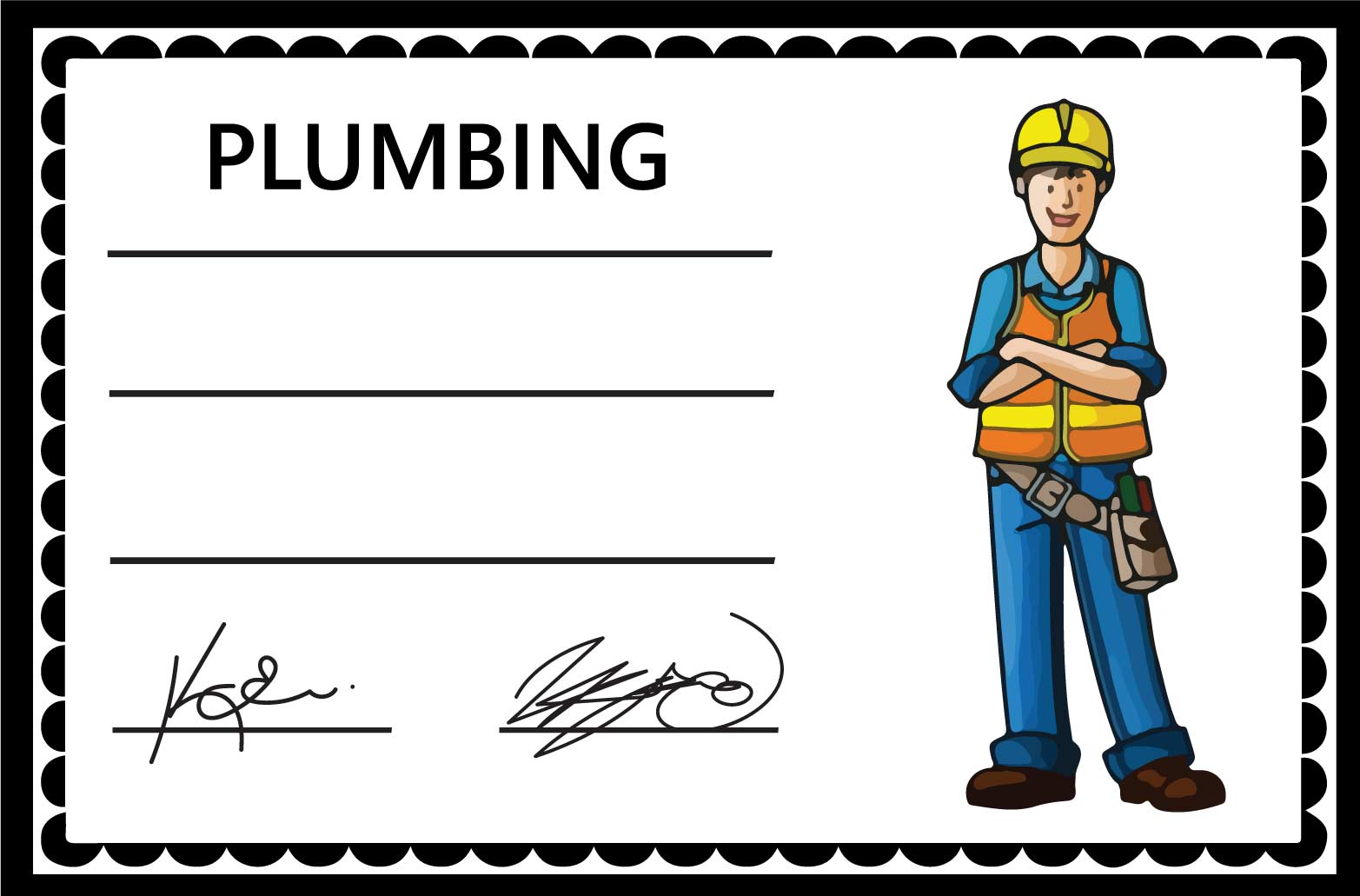
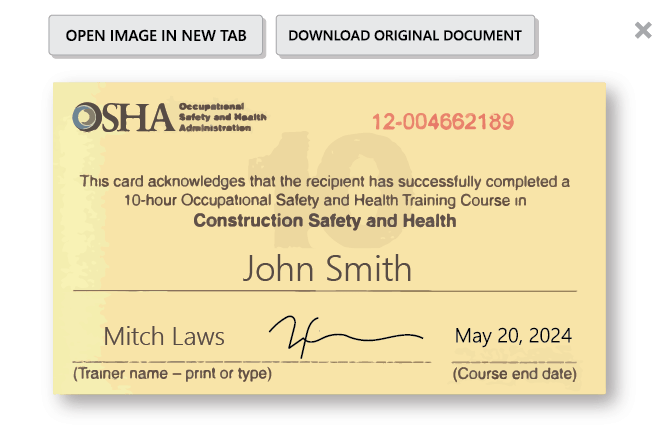
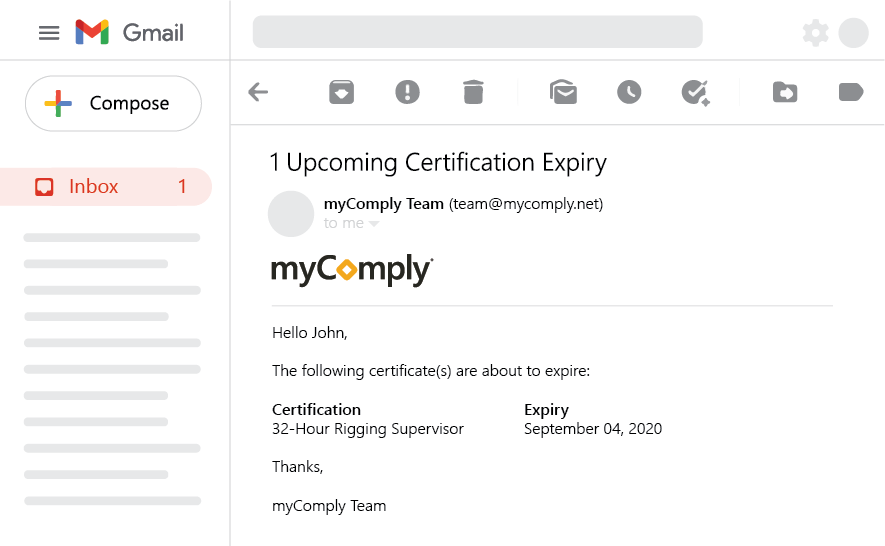
Thanks for mentioning here that a construction employee must ensure that they have updated certification so as to increase safety and avoid additional costs that insurance cannot cover in case of accidents. If I have my own construction company, I would understand how investing in the right place such as safety is really one of the top priorities. That’s why services in the utility oversight sector and other third-party companies should always be considered.